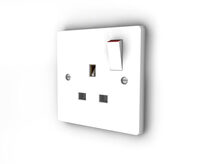 Making sure that your workplace is suitable for you and your employees to spend a large majority of their time is vital. In fact, if you do not pay enough attention to this particular area of your business, you could be fined, even be taken to court. There have been many cases in the past where employers simply do not assign priority when it comes to fire risk assessments, and in the event of a fire, employees may indeed sue the employer for their lack of attention and care.
Making sure that your workplace is suitable for you and your employees to spend a large majority of their time is vital. In fact, if you do not pay enough attention to this particular area of your business, you could be fined, even be taken to court. There have been many cases in the past where employers simply do not assign priority when it comes to fire risk assessments, and in the event of a fire, employees may indeed sue the employer for their lack of attention and care.
When conducting a risk assessment, there will be various aspects that you will be looking at. Some people prefer to hire a professional fire risk assessment company to enter the building and conduct an unbiased and comprehensive view of the premises to identify any risks. This gives peace of mind that the assessment has been carried out in a completely thorough, sufficient manner.
This may be beneficial to you if you do not have enough time to conduct a thorough risk assessment yourself, or if you would like the view of a professional who may pick up on hazards which you may not have identified as a risk.
Electrical hazards in the workplace are of particular concern to many companies, as many areas of the workplace feed electricity that could be a potential risk. This includes in offices, where computers, laminators and printers are all hooked up to the electricity, as well as kitchens, where kettles, microwaves and other kitchen essentials are also plugged into the mains power.
Some of the main electrical fire hazards present in places of work include overloading electrical plug points. Extension cables have a tendency to build up with the addition of new electrical appliances – once overloaded they can overheat and result in devastating consequences. It is also a good idea to regularly check all electrical equipment, wires, cords etc. for any visible faults that, if spotted early, could prevent electrical shorts.
Quite often, fan heaters are brought in and placed under desks. This is particularly dangerous as these are hot pieces of equipment that can catch paper on fire and even overheat/melt any nearby plastic. Also, all appliances need to be switched off when not in use, particularly at the end of the day. This sounds obvious, but often the end of day approaches and people are keen to get off, and simply leave computers etc. to sleep.
It is important that all of your electrical items are PAT tested regularly. If you have a professional in your business that is able to do this for you, this may save you money. However, do not be afraid to hire a professional, as this is an important task to complete. They can test all of your electrical equipment for you, and label each item with the date of testing and pass symbol.
The risk assessment may also identify any areas of risk including fire exits. Fire exits are very important in your business property, but some businesses simply use the fire exits as another place to store items. Boxes, and even desks and furniture can easily build up across a fire exit which prohibits people from passing through the door in the event of a fire. The fire exit should be clearly labelled and should be completely free from blockages.
As an employer, you should ensure that at least one person in your business premises is trained for first aid, and fire safety training is available to employees of all businesses. Also, every employee should have an introductory session when it comes to health and safety, so that they are able to identify any areas of risk which they may encounter whilst on the business property. By training all of your employees in this way, you are able to create a safer working environment overall. Protect yourself, your employees and your premises by taking extra care with electrical appliances in the workplace.